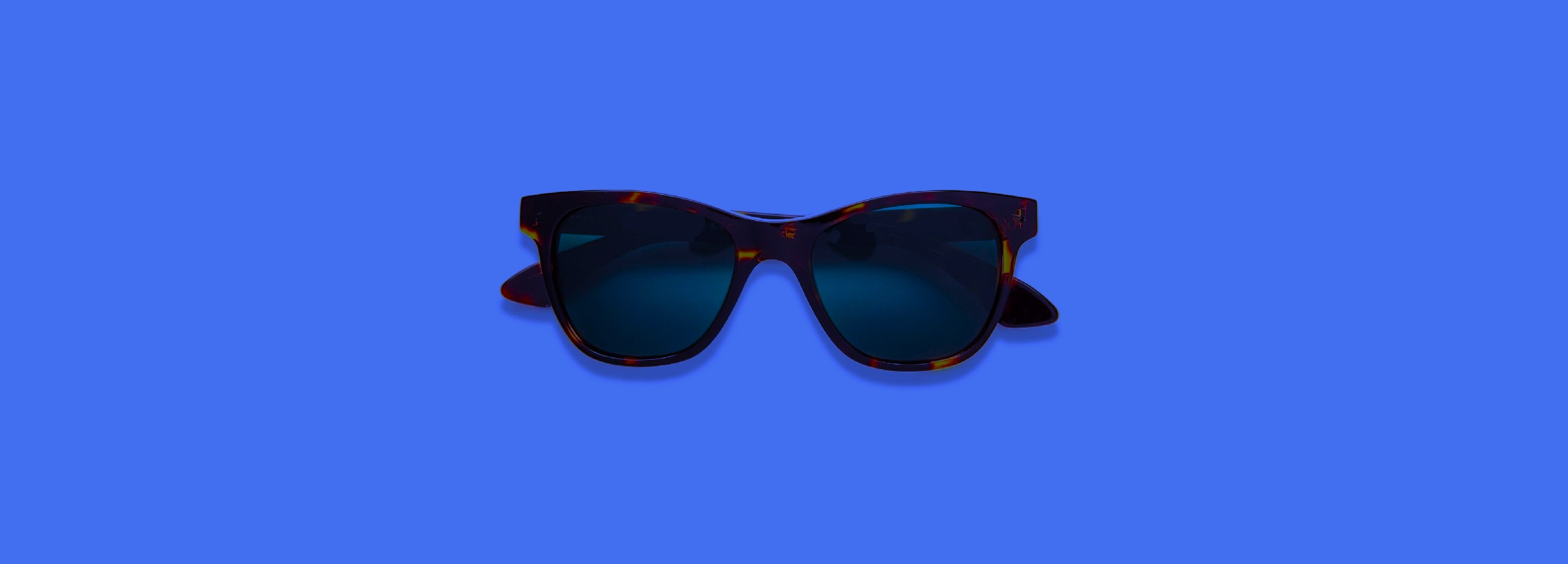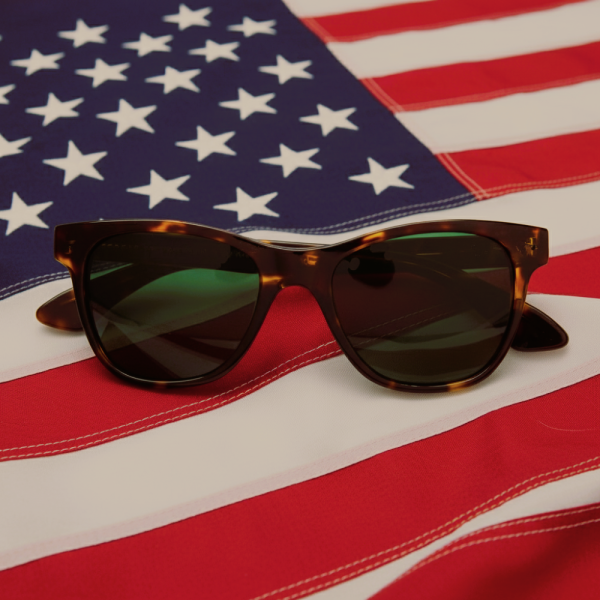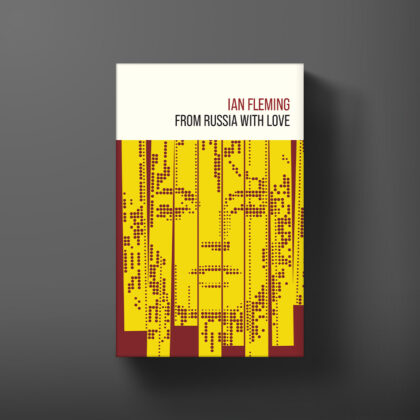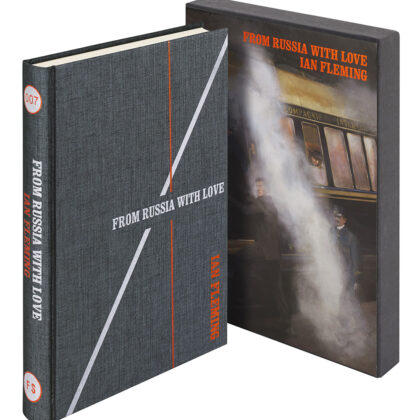BECOME A FLEMING INSIDER > JOIN HERE


After penning four James Bond novels, Ian Fleming is growing weary of his hero. Writing to his friend Raymond Chandler, Fleming confides ‘My own muse is in a bad way… it has been very difficult to make Bond go through his tricks in From Russia with Love’. Fast forward four years and From Russia with Love is named as one of US President John F. Kennedy’s ten favourite books in LIFE magazine. Everything changes. American sales of the series soar and the future of James Bond burns bright.
LIFE’s book selection isn’t a chance moment: JFK has been a longtime fan of agent 007. He’s first introduced to James Bond via Washington society powerhouse, Oatsie Leiter, who happens to also be a good friend of Fleming. In fact, Fleming’s CIA agent Felix Leiter is named after Oatsie and her husband Tommy. When Casino Royale is released, Fleming sends the couple a copy and Oatsie, never one to mince words, ‘quite’ enjoys the book.
In 1954, when Senator John F. Kennedy is in hospital recovering from back surgery. He calls Oatsie. ‘“Oates, I’m sick’” she recalls Kennedy telling her. “‘Have you got anything to read? I can’t find anything in this house that I think is possible to read.’ And I said, “Yes, do you like spy stories?”’ She sends over her copy of Casino Royale – written by her good friend. ‘He was crazy about it. And he said, “If you get another one at any point, let me know.”’ JFK’s bromance with Bond begins.
Inspired by her husband, Jackie Kennedy starts reading the Bond novels and makes another important connection for Ian. ‘I was introduced to Fleming’s books,’ notes CIA Director Allen Dulles, ‘by Mrs. Jacqueline Kennedy herself. “Here is a book you should have, Mr. Director” she said.’ He calls From Russia with Love ‘one of the best of Fleming’s thrillers.’
In March 1960, Ian Fleming arrives in Washington D.C and takes a trip out with Oatsie. ‘Ian and I were going somewhere, probably the National Gallery or something, and we were driving down one of the streets in Georgetown. And I saw Jack and Jackie walking down the street. As they started to cross one street, I stopped.’ Oatsie recalls. ‘I said, “Jack, this is Ian Fleming.” And Jack pokes his head in the window and says, “Not the Ian Fleming.” And I say, “Yes.” “Well,” he said, “bring him for dinner.”’
That night they get together at the Kennedy’s home. Also in attendance are columnist / part-time CIA operative Joseph Alsop and senior CIA director, John Bross. ‘Somehow the conversation came around to Castro, which was not all that unusual in those days,’ Oatsie recounts. After being asked how Bond would handle Castro, Fleming conjures up some outlandish ideas which, rumour has it, may or may not have been employed by the CIA in their war on communism.
In November 1960, JFK becomes President, and in March the following year, LIFE runs their article on his reading habits. It reports, ‘He has a weakness for detective stories, especially those of the British author Ian Fleming and his fictitious undercover man, James Bond.’
The inclusion of From Russia with Love in his top 10 stands out among the scholarly biographies and history books. And it doesn’t stop at the books: JFK is a fan of the films too. According to Forbes and records made by Paul Fischer, White House projectionist from 1953-1986, Kennedy screens Dr. No on 28th November 1962 in the POTUS’s private cinema. A year later, on 23rd October 1963, he invites his friend Ben Bradlee over to watch From Russia with Love. ‘The movie was James Bond, and Kennedy seemed to enjoy the cool and the sex and the brutality’, Bradlee writes in his 1975 book.
According to the Washington Times ‘the media loved to draw parallels between the fictional spy and the real-life president – so much so that their personas became intertwined in America’s cultural subconscious. This was no accident: Kennedy deliberately used Bond to project an image as a heroic leader who could meet any challenge in the most perilous years of the Cold War.’
JFK’s stamp of approval is the highest profile endorsement an author could hope for. With an extra dusting of Kennedy glamour, Ian Fleming’s celebrity rises, and James Bond’s becomes part of the cultural landscape.

